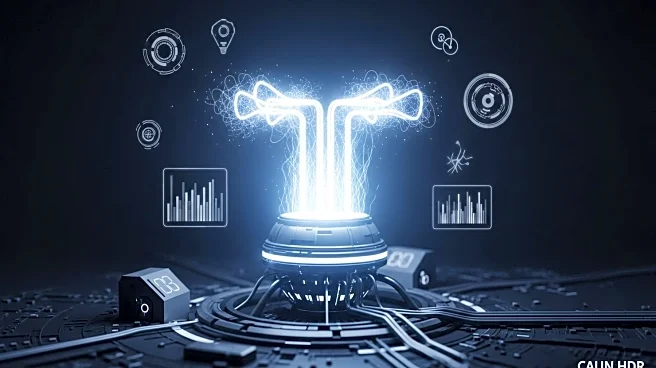What is the story about?
What's Happening?
Representative Carol D. Miller has introduced H.R. 5441, known as the Fusion Advanced Manufacturing Parity Act. The bill proposes amendments to the Internal Revenue Code to provide tax incentives for the production of fusion energy components. Specifically, it seeks to expand the existing advanced manufacturing production credit to include fusion energy components, offering a tax credit equal to 25% of the sales price of eligible components. The bill outlines a phased reduction of the credit, starting in 2032, with a complete phase-out by the end of 2034. The legislation aims to encourage the development and commercialization of fusion energy technologies by making manufacturing in this sector more economically viable.
Why It's Important?
The introduction of this bill underscores the growing interest in fusion energy as a potential clean energy source. By providing tax incentives, the legislation aims to accelerate the development of fusion technology, which could play a significant role in reducing reliance on fossil fuels and addressing climate change. The bill's phased approach to reducing tax credits reflects a strategy to stimulate initial investment while gradually decreasing dependency on government incentives. This could lead to increased private sector investment and innovation in the fusion energy sector, potentially positioning the U.S. as a leader in this emerging field.
What's Next?
If passed, the bill would take effect for components produced and sold after December 31, 2025, giving manufacturers time to adjust their production strategies. The legislation's progress will be closely watched by stakeholders in the energy and manufacturing industries, as well as policymakers interested in promoting sustainable energy solutions. The bill's success could influence future legislative efforts to support other clean energy technologies.















